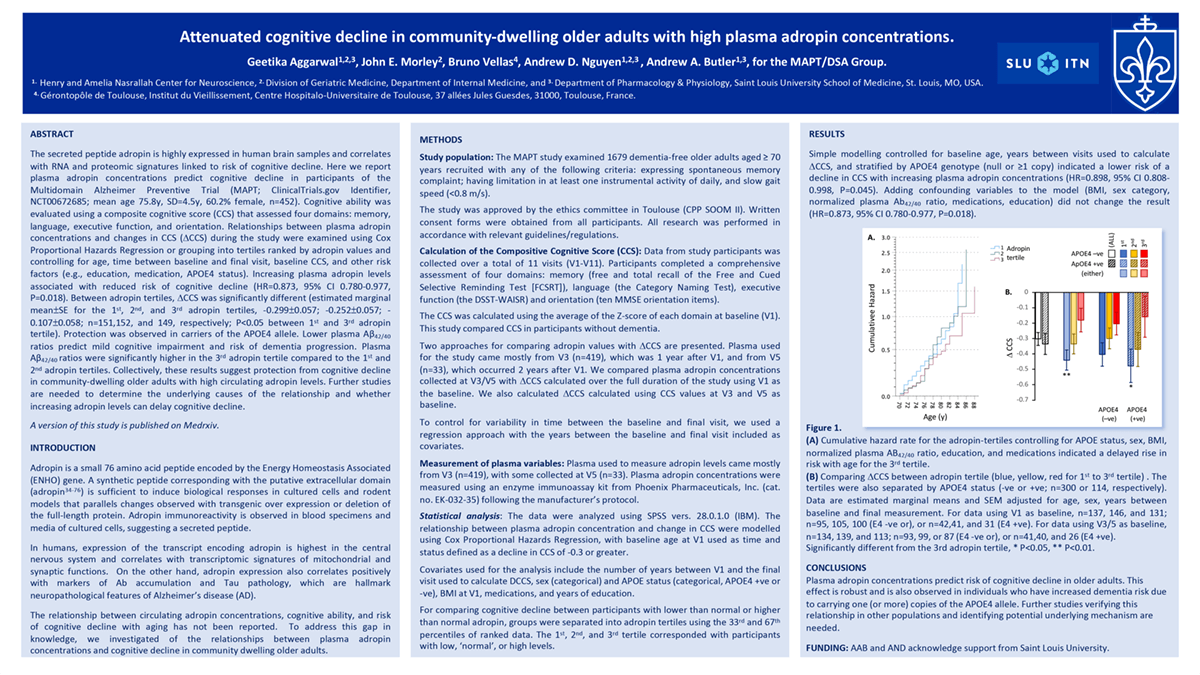
Introduction: Adropin is highly expressed in post-mortem human brain samples relative to other tissues and correlates with RNA and protein signatures linked to cognitive decline. Increasing adropin levels in old C57BL/6J mice improves learning and memory. Whether circulating adropin levels correlate with cognitive decline in humans of advanced age is not known.
Methods: We investigated the relationship between plasma adropin concentrations and cognitive decline in participants of the Multidomain Alzheimer Preventive Trial (MAPT; ClinicalTrials.gov Identifier, NCT00672685; mean age 75.8y, SD=4.5y, 60.2% female, n-452). Cognitive ability was evaluated using a composite cognitive score (CCS) that assessed four domains: memory, language, executive function, and orientation. Relationships between plasma adropin concentrations and changes in CCS (deltaCCS) during the study were examined using cox binomial regression or grouping into tertiles ranked by adropin values and controlling for age, time between baseline and final visit, baseline CCS, education and medications.
Results: Increasing plasma adropin levels associated with reduced risk of cognitive decline (HR=0.873, 95% CI 0.780-0.977, P=0.018). Between adropin tertiles, deltaCCS was significantly different (estimated marginal mean andSE for the 1st, 2nd, and 3rd adropin tertiles, -0.299+/-0.057; -0.252+/-0.057; -0.107+/-0.058; n=151,152, and 149, respectively; P<0.05 between 1st and 3rd adropin tertile). Protection was observed in carriers of the APOE4 allele, while plasma Aβ42/40 ratios were significantly higher in the 3rd adropin tertile.
Impact: These results suggest that the rate of cognitive decline is lower in community-dwelling older adults with higher circulating adropin levels. Further studies are needed to determine the underlying causes of the relationship and whether increasing adropin levels can delay cognitive decline.
Organization: Saint Louis University
Butler AA, Aggarwal A, Morley JE, Vellas B, Nguyen AD